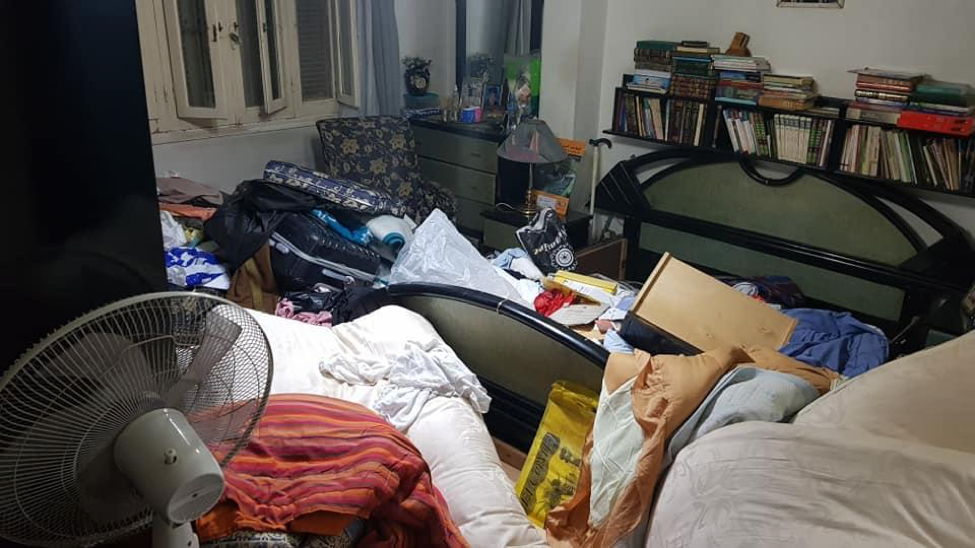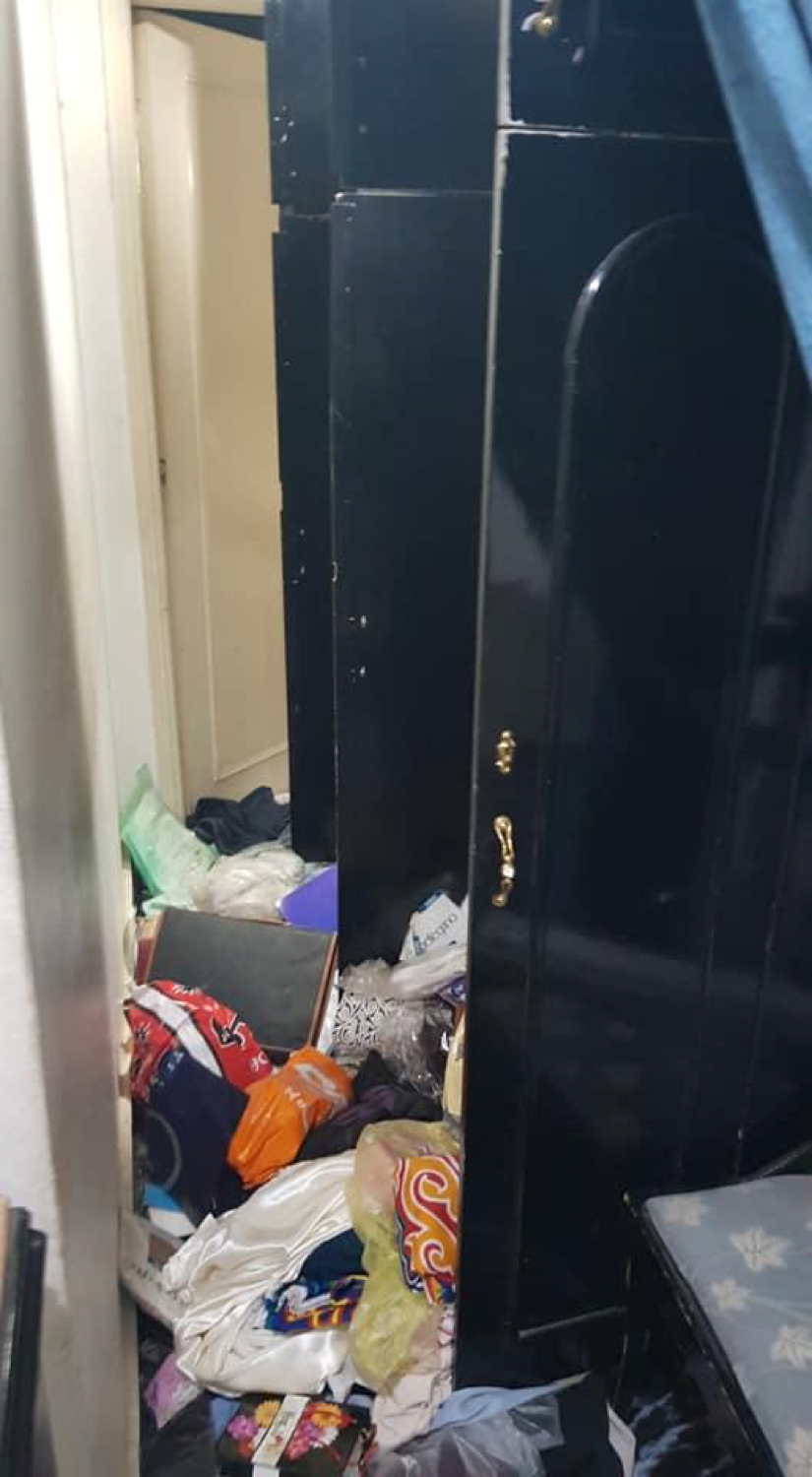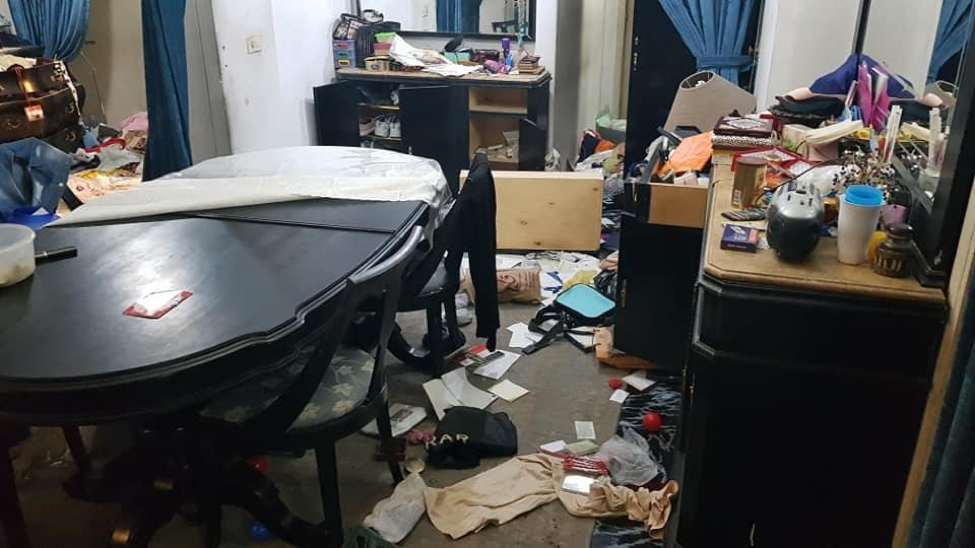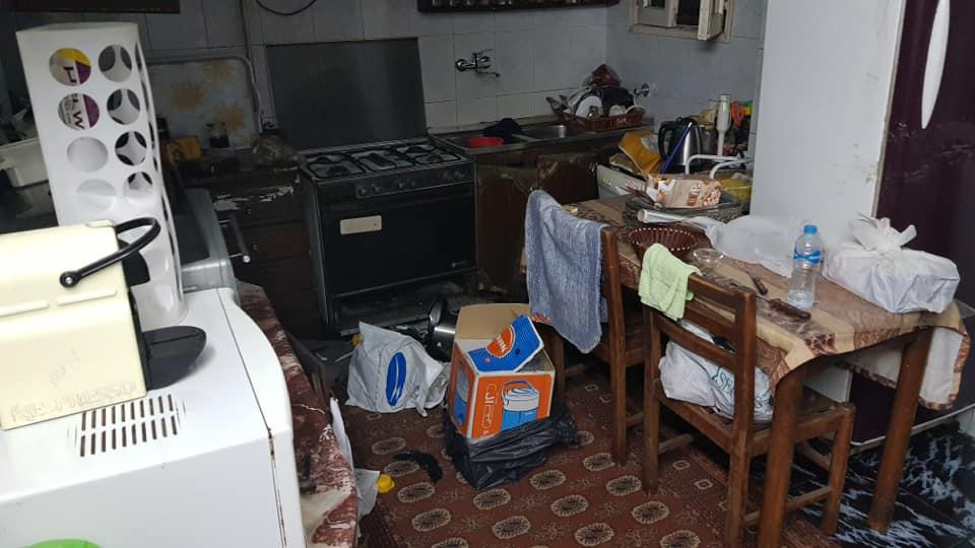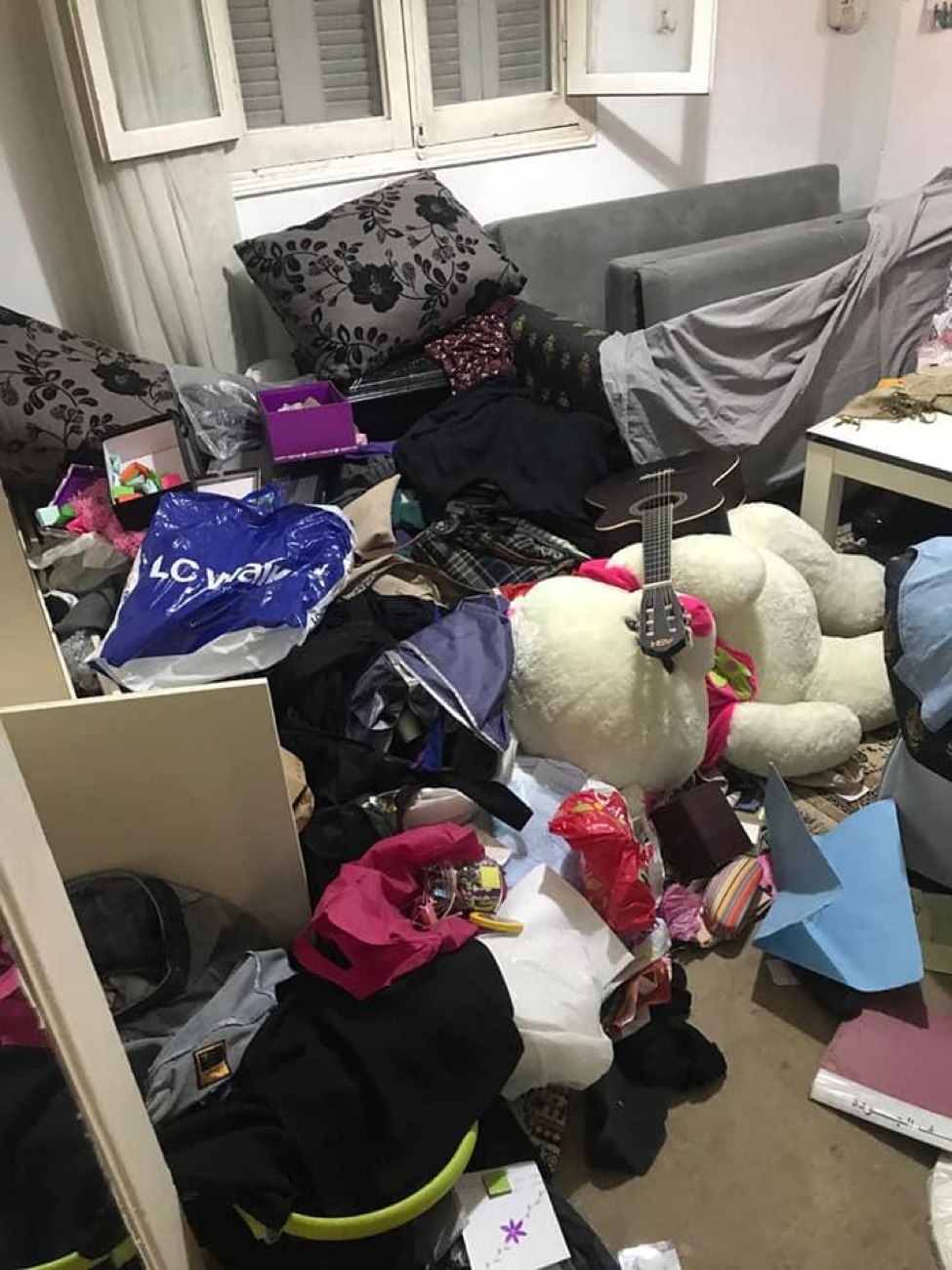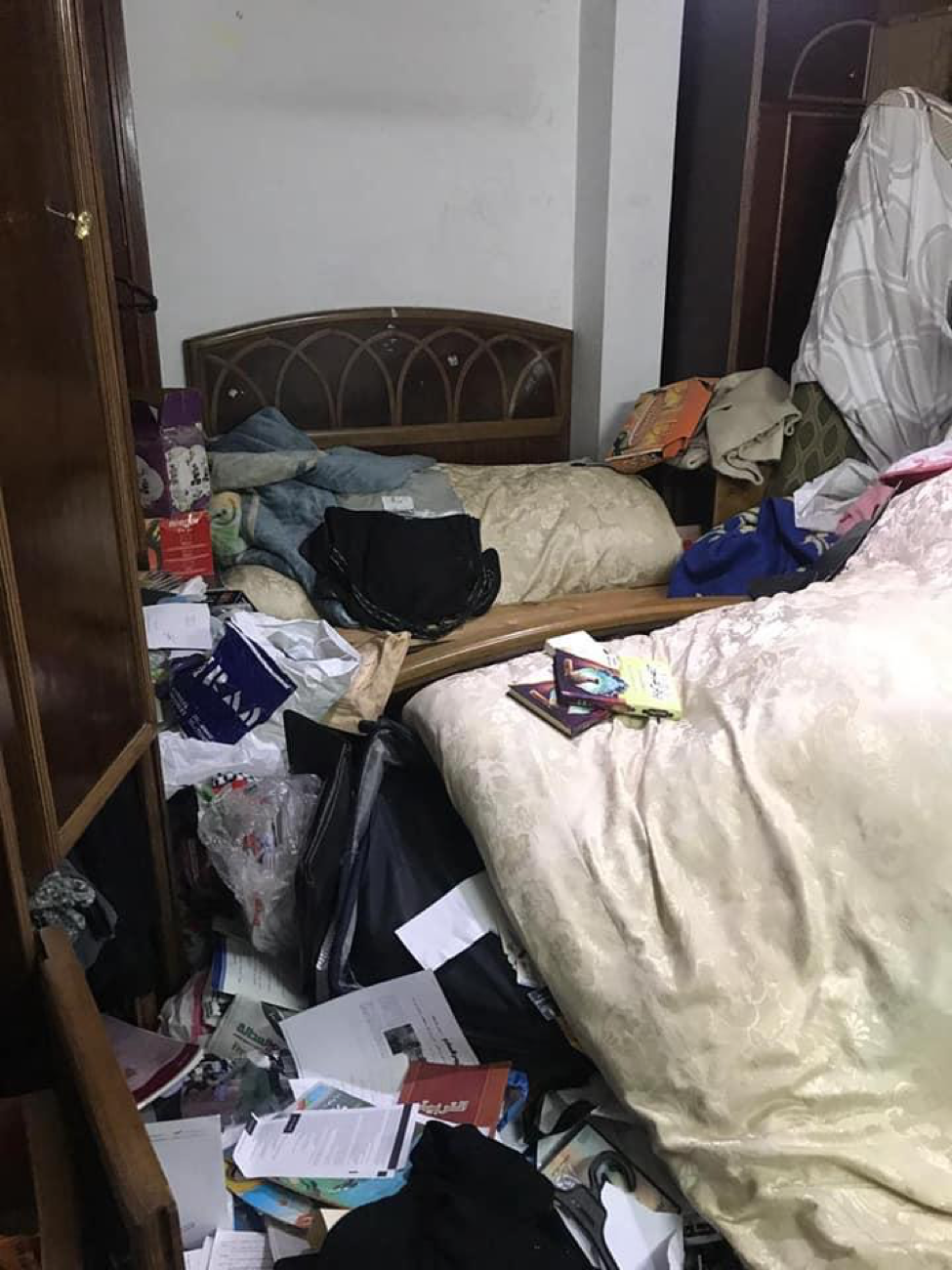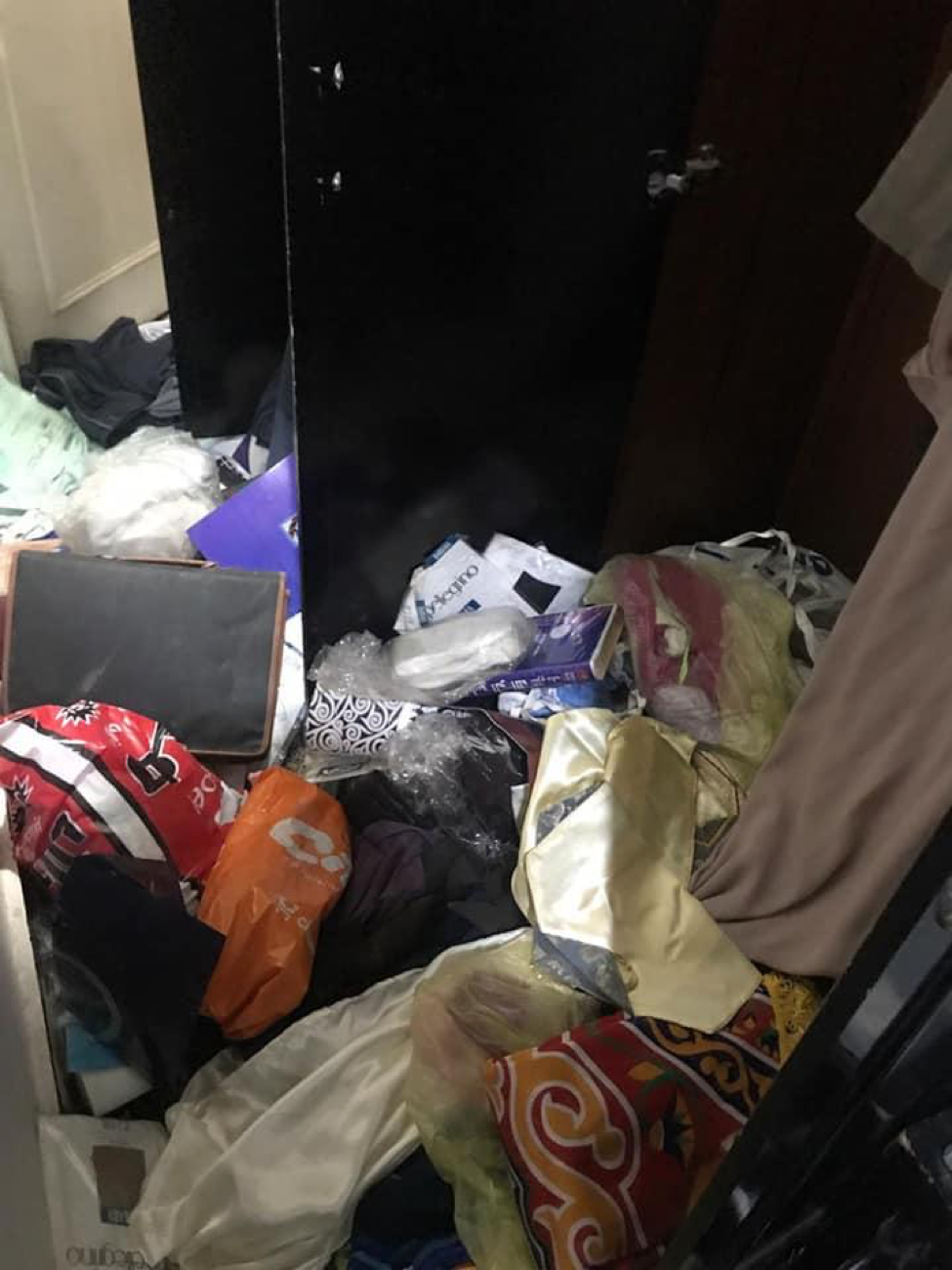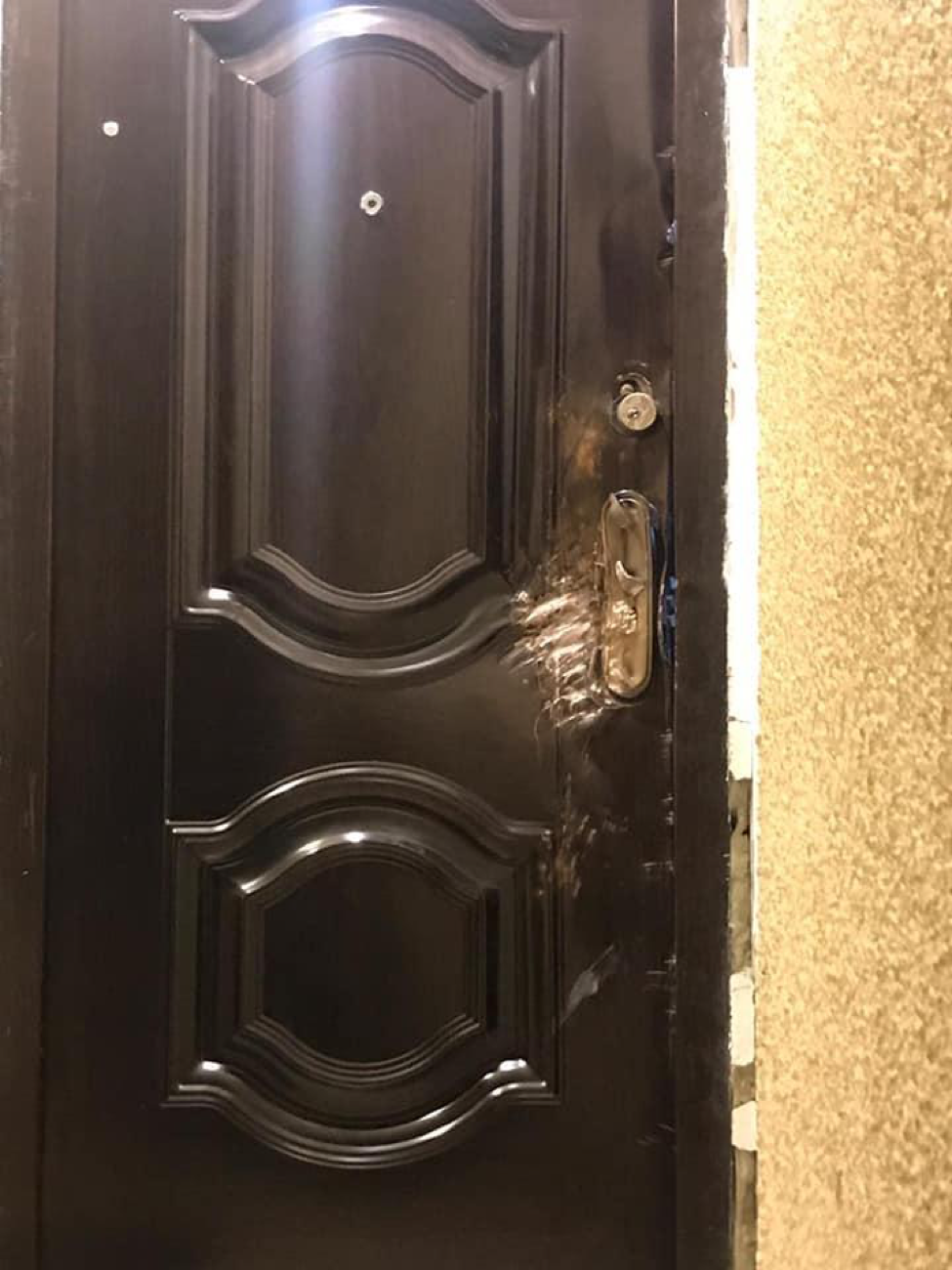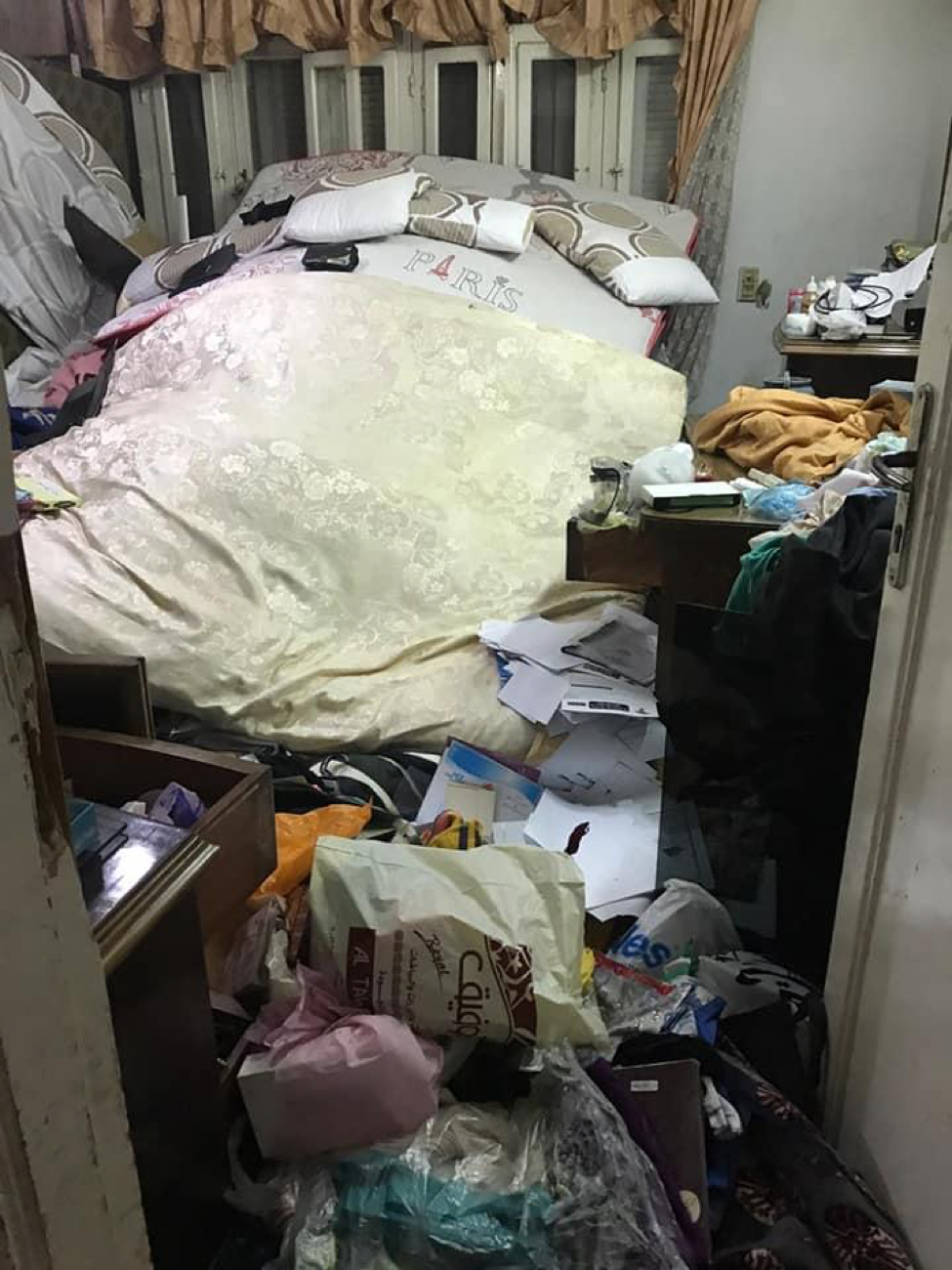Summary
Hoda Abdel Moneim Abdel Aziz Hassan (هدي عبد المنعم عبد العزيز حسن) is a 63-year-old human rights lawyer who formerly served on Egypt's National Council for Human Rights. She was a member of the Egyptian Parliament from 2012-2013. Egyptian authorities arrested her in November 2018 and accused her of funding and belonging to a terrorist organization, as well as incitement to harm the national economy. She remains in detention at Qanater prison.
Methodology:
DAWN researchers interviewed sources close to the detainee and made use of other information from published sources that we consider reliable, as indicated below. Interviews include the following:
Source A: June 28, 2020
Source B: June 29, 2020
We do not disclose the identity of these sources to protect their security. We reference our sources hereas "Source A" and "Source B."
Personal Background
Hoda Abdel Moneim is a human rights lawyer and human rights defender (HRD). Abdel Moneim is married to Khaled Badawy and has four daughters.

Professional Background
Abdel Moneim worked as a consultant with the Egyptian Committee for Rights and Freedoms (ECRF). She also worked on documenting human rights abuses, including incidents of enforced disappearance, in Egypt. Abdel Moneim is a lawyer for the Egyptian Cassation and Supreme Constitutional Courts, as well as a former member of the Egyptian Bar Association, Egypt's National Council for Human Rights, and the 2012-2013 Egyptian Parliament.
Abdel Moneim also worked as a spokesperson for the Women's Revolutionary Coalition of Egypt; an Islamist group opposed to the removal of former President Mohamed Morsi.
Abdel Moneim was a legal adviser to the International Islamic Council for Call and Relief, headed by Al-Azhar Grand Sheikh Ahmed Al-Tayib. She represented Egypt in conferences related to international conventions and declarations on women and children's rights.
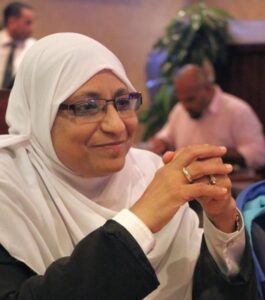
Time and Circumstances of Arrest
According to her daughter, Fadwa Khaled, and public reports, unidentified state security forces burst into Abdel Moneim's house in Nasr City in Cairo at 1:30am on November 1, 2018, blindfolded her, and put her in a police vehicle. Afterwards, the officers self-identified as members of the State Security apparatus. However, they never presented her with an arrest warrant, gave a reason for the arrest, or informed Abdel Moneim or her family of her destination.
The security forces ransacked the house after arresting her, destroying several family possessions. Abdel Moneim's family published photos showing the havoc wreaked by the search. After searching the house for almost two hours, the security forces left with several suitcases. According to Source A, whom DAWN interviewed on June 28, 2020, these suitcases contained books and DVDs belonging to the family.
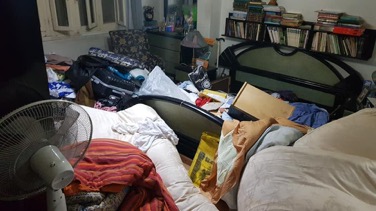
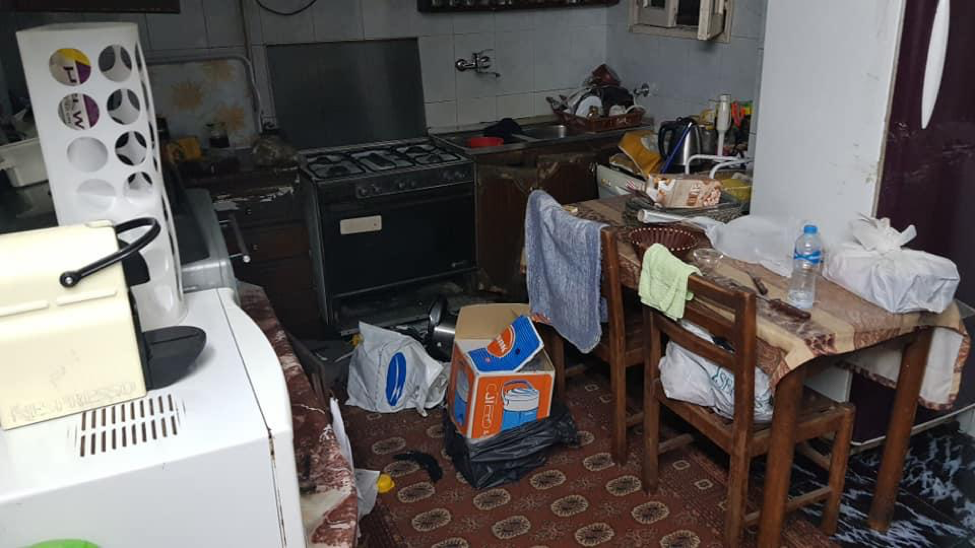

State Security officers forcibly took Abdel Moneim to an unknown location. Abdel Moneim's lawyers inquired about her whereabouts at different police stations but were unable to locate her. The authorities denied arresting her and claimed to know nothing of her whereabouts. After three weeks, Abdel Moneim appeared before the Supreme State Security Prosecution (SSSP) in New Cairo without notifying her family or her lawyer. Judge Khaled Diaa el-Din, Head Of the SSSP, whose name appears on all pretrial detention orders, ordered her detained for 15 days pending investigation.
Charges
Abdel Moneim is part of Case No. 1552/2018. The SSSP have presented no witnesses or evidence to prove the alleged charges. There is no official written copy of the charges. Official legal documents pertaining to the case are not available to the defendant or her lawyer. This follows Egyptian authorities' systematic practice of depriving remanded defendants of their right to be clearly informed of the charges against them and their rights under the Egyptian constitution and other international legal provisions.
The SSSP charged her with:
Joining and funding a terrorist organization, as well as incitement to harm the national economy, pursuant to Egypt's anti-terrorism law and penal code:
Joining a terrorist group is defined as a crime in two laws in Egypt, both of which the prosecutor cited.
Article 12 of Egypt's Anti-Terror Law (Law No. 94 of 2015) states,
"Whoever establishes, organizes, or manages a terrorist group, or assumes its leadership or a leadership position in it, shall be punished by death or life imprisonment. Temporary hard labor shall be the penalty inflicted on whoever joins a terrorist group or participates in it in any way while being aware of its objectives, and the punishment shall be temporary hard labor for a period of no less than ten years if the perpetrator receives military, security, or technical training by the terrorist group to achieve its objectives, or if the perpetrator is a member of the armed forces or police. Whoever compels a person to join a terrorist group, or prevents him from disassociating from it, shall be punished with life imprisonment. Execution shall be the penalty if this action results in the death of the person."
Article 13 of Egypt's Anti-Terror Law (Law No. 94 of 2015) states,
"Whoever commits a terrorist financing crime shall be punished with life imprisonment if the financing is for a terrorist, and death shall be the punishment if the financing is for a terrorist group or a terrorist act. The same penalty stipulated in the first paragraph of this article shall be imposed if the financing of terrorism is intended to support individuals to travel to a country other than their country of residence or nationality for the purpose of committing, planning, preparing, participating in, or providing aid to any form of terrorist crime.
In cases where the crime is committed by a terrorist group or a legal person, the person responsible for the actual management of this group or that person shall be punished with the punishment prescribed in the first paragraph of this Article. The terrorist group or legal person shall be punished with a fine of not less than one hundred thousand pounds and not exceeding three million pounds, and it shall be jointly responsible for fulfilling the financial penalties or compensation for which it is judged to be liable.
Article 86 (repeated) of Egypt's Penal Code states,
"Whoever establishes, organizes, or administers, in contravention of the provisions of the law, an association, body, organization, group or gang, whose purpose is, by any means, to disrupt the provisions of the Constitution or laws or to prevent a state institution or one of the public authorities from exercising its actions, or assaulting the personal freedom of the citizen or other public freedoms and rights guaranteed by the Constitution and the law, or harming national unity or social peace, shall be punished with imprisonment… Anyone who assumes leadership, or leads in it, or provides material or financial aid with knowledge of the purpose for which it is called, shall be punished with temporary hard labor."
Trial and Legal Proceedings
- November 21, 2018
According to Fadwa Khaled's Facebook post, Abdel Moneim first appeared before the SSSP prosecutor at the New Cairo SSSP Prosecution headquarter on November 21, 2018, almost three weeks after her initial arrest and enforced disappearance.
- Her family and lawyer did not know of Abdel Moneim's whereabouts between December 2, 2018, and January 14, 2019.
- January 15, 2019
Abdel Moneim appeared before the SSSP prosecutor, who extended her pre-trial detention for 15 days. She told her daughter, Fadwa Khaled, that she did not know where the security forces were holding her.
- January 30, 2019
According to source A, security forces transferred Abdel Moneim to Qanater prison.
- March 17, 2019
SSSP prosecutor renewed Abdel Moneim's pretrial detention for 15 days. Since then, Cairo's criminal court has renewed her pre-trial detention for 45 days at a time.
Under Egyptian law, the prosecutor has the right to renew the pretrial detention for 15 days, for up to 150 days. The SSSP prosecutor, whose identity DAWN was unable to ascertain, referred the case to the Cairo Criminal Court, most likely because Egyptian law requires a judge to extend pretrial detention beyond 150 days. DAWN researchers were unable to ascertain the name of the judge presiding over this case. Egyptian law requires courts to renew such detentions every 45 days. The combined prosecutorial and judicial pretrial detention cannot exceed two years under Egyptian law for even the worst offenses. There is no record available to DAWN about renewals in Abdel Moneim's case during this period (March 17, 2019-February 5, 2020). However, Egyptian SSSP prosecutors presumably automatically renewed her detention.
- February 5, 2020
The Cairo Criminal Court renewed Abdel Moneim's pre-trial detention for another 45 days.
- June 9, 2020
Fadwa Khaled, Abdel Moneim's daughter, posted an emotional video on Facebook expressing her distress over not knowing of her mother's whereabouts for nearly four months and calling for releasing Abdel Moniem.
- June 16, 2020
The Cairo Criminal Court extended Abdel Moneim's pre-trial detention for another 45 days.
- July 19, 2020
The Cairo Criminal Court extended Abdel Moneim's pre-trial detention for another 45 days.
The SSSP provided no evidence to support the charges against Abdel Moniem and presented no evidence to establish any of the statutory conditions for pre-trial detention as stipulated in Article 134 of Egypt's Code of Criminal Procedures, which permits pre-trial detention only "if one of the following cases or reasons is available:
- In flagrante delicto [if the defendant was caught in the act of committing the crime].
- Fear of the escape of the defendant.
- Fear of harming the interest of the investigation, whether by influencing the victim or witnesses, or by tampering with the evidence and physical clues, or by making agreements with the rest of the perpetrators to change the truth or obscure its features.
- Preventing serious breaches of security and public order that may result from the gravity of the crime.
- However, the accused may be held in remand if he does not have a fixed permanent place of residence in Egypt, and the crime is a felony or a misdemeanor, punishable by imprisonment.
The failure of the SSSP to make clear which of the above stated preconditions were met in Abdel Moniem's case casts serious doubts on the legality of the decision to hold him in detention.
- August 23, 2021
The SSSP referred Abdel Moniem to the State Security Emergency Criminal Court, but she remains in pre-trial detention.
November 27, 2020
The Council of Bars and Law Societies of Europe (CCBE) announced that Hoda Abdel Moniem along with six other detained Egyptian lawyers would receive the 2020 CCBE Human Rights Award. This award recognized Moniem and her fellow lawyers for "their courage, determination and commitment to defending human rights in Egypt."November 30, 2020
On November 30, 2020, Jihad Khaled, Abdel Moneim's daughter, posted a video reporting that her mother's health has deteriorated and that she is suffering from kidney failure. According to multiple reports from human rights organizations, the Egyptian Prison Authority transferred Abdel Moniem to Al Maniyal hospital.
August 23, 2021
The SSSP referred Abdel Moniem to the State Security Emergency Criminal Court, but she remains in pretrial detention.
August 25, 2021
Khaled Badawi, Abdel Moneim's husband, said that the SSSP referred Abdel Moniem and others were to the Criminal Court. The decision came after Abdel Moniem exceeded the legally specified period of pretrial detention (two full years) and that she should be released. Nevertheless, the Egyptian authorities refused to release her and referred her to trial in violation of Egyptian law.
September 2, 2021
The 24th circuit of South Cairo Criminal Court, headed by Judge Sami Mahmoud Zein El-Din, and including Judge Mohamed Mohy El-Sherbiny and Judge Kamel Samir Kamel, listed Abdel Moniem on their terrorist lists along with other 30 other people. Listing a person on a terrorist list entails several procedures under Article Seven of Law No. 8/2015, which regulates the lists of terrorists and terrorist entities. These acts include:
- Issuing a travel ban, or banning a foreign citizen from entering the country;
- Revoking an individual's passport or preventing the issuance of a new passport;
- Loss of "good reputation," which is a necessary requirement to hold a public position or parliamentary office; and
- Freezing the individual's funds whenever they are used in a terrorist activity.
September 3, 2021
The Emergency Supreme State Security Criminal Court set the September 11, 2021 session as the first trial session of Abdel Moneim.
September 13, 2021
The Emergency Supreme State Security Criminal Court postponed Abdel Moneim's trial to October 11, 2021.
October 11, 2021
The Emergency Supreme State Security Criminal Court postponed Abdel Moneim's trial to November 9, 2021. During the court session, Moneim said she had a heart attack. Moneim was supposed to have an EKG, but Egyptian officials did not complete this medical procedure until 20 days later. The attending doctor told Moniem that she suffers from a blockage in the coronary artery and that she needs a catheterization. Despite this medical need, the doctor refused to transfer Moneim to a hospital, citing a lack of transportation and the presence of Covid-19 within Egyptian hospitals.
November 9, 2021
The Emergency Supreme State Security Criminal Court postponed Abdel Moneim's trial to December 15, 2021.
December 26, 2021
The Emergency Supreme State Security Criminal Court postponed Abdel Moneim's trial to February 14, 2022.
March 5, 2023
The Supreme State Security Court sentenced Abdel Moneim to five years imprisonment in a ruling on Case No. 1552/2018.- March 6, 2023: On March 5, 2023, the Supreme State Security Court sentenced Abdel Moneim to five years imprisonment in a ruling on Case No. 1552/2018. Abdel Moneim's daughter stated that family members are still prohibited from visiting Hoda, and that her mother arrived at the court in an ambulance, suggesting her health continues to deteriorate.
- April 15, 2023: The lawyer Khaled Badway, husband of Hoda Abdel Moneim, said that Qanater prison administration refused to enable him to visit his wife or to deliver clothes and medicine to her. He added that he asked for a letter from his wife to make sure that she feels well, but they refused.
Detention Conditions
According to Source B, security forces did not allow Abdel Moneim to gather any personal belongings, including medications before her enforced disappearance. She was diagnosed with and suffers from deep vein thrombosis, a condition that causes a blood clot in a vein in her leg that limits her movement and requires regular medication. She also takes medication for her high blood pressure, which often causes her to lose balance.
On February 5, 2020, Abdel Moneim's daughter, Fadwa Khaled, said that her mother had a heart attack and was transferred to the prison hospital. According to Khaled's Facebook post, Abdel Moniem had attended the court session on February 4 in a wheelchair.
In March 2020, Fadwa Khaled confirmed the deterioration of her mother's health after speaking with her mother's lawyer. According to the lawyer, in February, security forces had transferred Abdel Moneim from Qanater prison to the court in an ambulance.
In March 2020, another of Abdel Moneim's daughter, Jihad Khaled, told AFP that the prison authority had denied her mother medication for over three months. Jihad Khaled also expressed concern that the hospital in Qanater Women's Prison—where Fadwa Khaled says the state transferred her mother on January 30, 2019—does not have specialist doctors who can provide Abdel Moniem with the medical care she needs.
In May 2020, after attending her client's court session, Abdel Moniem's lawyer told Fadwa Khaled that her mother had suffered from a blood clot in her heart. The Qanater prison authority transferred her to the prison's hospital.
On November 30, 2020, Jihad Khade, Abdel Moneim's daughter, posted an emotional video reporting that her mother's health has deteriorated and that she is suffering from kidney failure. According to multiple reports from human rights organizations, the Prison Authority transferred Abdel Moneim to Al Maniyal hospital.
Impact on Family
Security authorities had put Abdel Moneim on a travel ban since 2013 due to her affiliation with the Muslim Brotherhood and the Morsi regime.
Abdel Moneim's family reported no government retaliation against her relatives to the DAWN researchers.
Violation of Rights
Right to Humane Treatment and the Prevention of Torture
The Prison Authority of Qanater prison has denied Abdel Moniem proper medical care. Local and international rights groups have warned repeatedly for years that conditions in the prisons in Egypt, especially access to health care, fell far below appropriate standards.
Articles 51-52 and 55 of the Constitution, Article 40 of the Code of Criminal Procedure, and Article 126 of the Code of Penal Procedure forbid torture and other violence. Egypt has also ratified international legislation that supports this right. Security forces denied Abdel Moneim humane treatment by preventing her from accessing necessary medications for over a year, inaccess that likely resulted in her suffering a heart attack while imprisoned.
[Article 51-52, 55, Egypt's constitution; Article 40, Egyptian Code of Criminal Procedure; Article 126, Egyptian Code of Penal Procedure; Principle 6, Body of Principles for the Protection of All Persons under Any Form of Detention or Imprisonment; Article 5, African Charter on Human and Peoples' Rights; Article 5, Universal Declaration of Human Rights (UDHR); Article 7, The International Covenant on Civil and Political Rights (ICCPR); Article 2, 10 (1, 2), 16, Convention against Torture and Other Cruel, Inhuman or Degrading Treatment or Punishment (CAT)]
Right to Physical and Mental Health
Security forces denied Abdel Moneim from accessing necessary medication, contributing to the deterioration of her physical health.
[Article 18, 55, Egypt's Constitution; Article 14 (4) Arab Charter on Human Rights; Article 25 (1), UDHR; Article 12 (1), ICESCR; Principle 9, Basic Principles for the Treatment of Prisoners; Principle 24, Body of Principles for the Protection of All Persons under Any Form of Detention or Imprisonment]
Right to Freedom of Speech, Freedom of Association, and Freedom of Participation in Public Affairs
Abdel Moneim was lawfully exercising her rights as an HRD through her intellectual and political work. Instead of protecting her lawful exercise of these rights, the state actively retaliated by arresting her.
Articles 19, 22, and 25 of the International Covenant on Civil and Political Rights (ICCPR), which Egypt has ratified, specifically safeguard these rights. Likewise, Articles 5-8 of the United Nations Declaration on Human Rights Defenders safeguard certain rights exercised by HRDs, and Article 12 requires states to protect HRDs from abuse, threats, retaliation, de facto or de jure adverse prejudice, coercion, or any other arbitrary action exacted as a result of their lawful exercise of such rights.
[Article 18-20, UDHR; Article 19, 22, 25, ICCPR; Articles 5-8, 12, United Nations Declaration on Human Rights Defenders]
The right to a fair trial
Defendants should receive a fair trial during the whole process of the investigation and trial.
[Article 77, Egypt's Prisons Organization Law No. 396 of 1956; Article 96, Egypt's constitution; Article 13, 14, 16 Arab Charter on Human Rights; Article 7, African Charter on Human and Peoples' Rights; Article 14, ICCPR]
The right to a reasonably-timed trial or release
While Article 54 of the Egyptian Constitution protects personal freedom and guarantees that any limitations of this freedom be based on judicial warrant necessitated by an investigation, the article makes the legislature responsible for regulating preventive (pre-trial) detention.
The SSSP uses this practice, known as "recycling" cases, to allow the prosecution to start a new two-year pretrial detention period by bringing the same charges in a new case and thereby circumventing the law that limits pretrial detention to two years even for maximum offenses.
[Article 54, Egypt's constitution; Article 14 (5, 6) Arab Charter on Human Rights; Article 9 (3) ICCPR; Principle 37, 38, Body of Principles for the Protection of All Persons under Any Form of Detention or Imprisonment]
Officials Involved in Prosecution and Detention
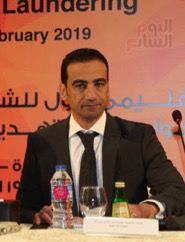
Judge Kaled Diaa el-Din, head of the SSSP, is listed on all of the SSSP decisions to hold and extend the unlawful pre-trial detention, including Abdel Moniem.
Under Diaa el-Din's leadership, the SSSP exercised its prosecutorial discretion to bring criminal charges against El-Shenety for peaceful speech and political activity. El-Din is also responsible for prosecutorial decisions to hold El-Shenety in pretrial detention, by issuing prosecutorial orders to detain and requesting judicial orders to detain. His name appears directly on those orders.
International Reactions
Jihad Khaled, Abdel Moneim's daughter, wrote a blog for Noonpost about her mother's ongoing detention.
NPR covered Jihad Khaled's trip to Washington DC April 2020 to meet with members of Congress and human rights activists in order to advocate for her mother's release. Among others, she met with Representative Ilhan Omar.
Based in The Netherlands, the NGO Lawyers for Lawyers condemned the arrest of Abdel Moneim.
On November 27, 2020, the Council of Bars and Law Societies of Europe announced granting the 2020 CCBE Human Rights Award to Hoda Abdel Moniem along with six other detained Egyptian lawyers. The award is a recognition of her outstanding commitment and sacrifice to uphold the core fundamental values of the legal profession.
***
Below are photos shared with us from Abdel Moneim's family showing her apartment ransacked, likely by the security forces who detained her.
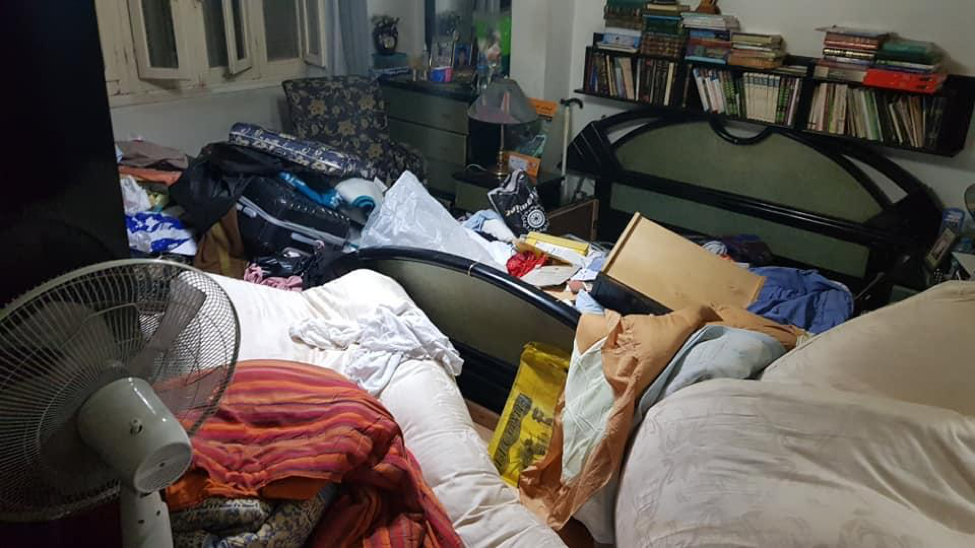 \
\